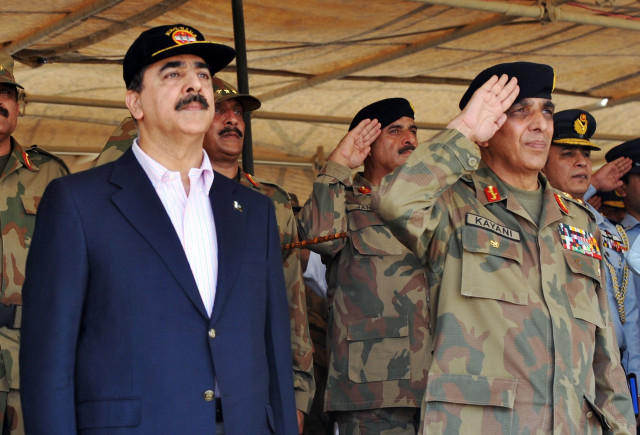So the drama, so the din
Democracy in transition is not a normal state of affairs for any country least of all for Pakistan.

So the drama, so the din
General Kayani, no doubt did a wonderful job when as ISI chief he negotiated a deal for democracy with the late Benazir Bhutto, ostensibly on behalf of former president General Musharraf. In fact, one could say without the fear of being contradicted that he along with the former British foreign secretary David Miliband and former US secretary of state Condoleeza Rice had played a vital role in nursing Pakistan back to democracy. And as the COAS, he is seen to have focused more on coping with domestic militancy rather than on playing the typical ambition laden tricks that Pakistani army chiefs usually play with the civilian governments.
However, the Army under General Kayani is still playing a role much beyond its constitutional limits. It still dictates Pakistan’s foreign, defence and economic policies and imposes on the country strategies that limit its scope for economic growth. If the general wants to take to logical conclusion what he had started midway through 2007 in London he must gradually over the next three years let these policies be dictated by national interests rather than narrow institutional interests. And while he is trying to defeat militancy in the domestic battleground (one hopes he finally decides to go into North Waziristan to dismantle the Haqqani network on a priority basis), he must also endeavor to ensure that Pakistan’s soil is not used to export terror to other countries, especially to the US, India and Afghanistan because we have been warned that such an event will have devastating consequences for Pakistan..
General Kayani should also be able to use the opportunity to persuade his institution never to be tempted into deluding itself that it has some kind of magic wand using which it can eliminate corruption from Pakistan overnight. In civilized countries an independent judiciary, a free media and a strong parliament working together manage to control corruption and improve governance. Luckily for Pakistan we seem to be heading towards achieving this goal.
Indeed, for the first time in Pakistan’s history we have at the moment a seemingly independent judiciary, a seemingly free media, a seemingly weak executive, a seemingly strong parliament (it would not have been possible otherwise to have passed the 18th amendment unanimously) and an Army seemingly not interested in taking over the reins of the country. But each one of these institutions are still in the process of trying to find its constitutional limits and scope. Therefore the din, mistaken by many for lack of governance.
Published in The Express Tribune, July 24th, 2010.



















COMMENTS
Comments are moderated and generally will be posted if they are on-topic and not abusive.
For more information, please see our Comments FAQ